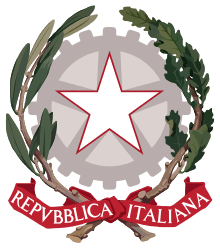Luigi Federzoni
| Luigi Federzoni | |
|---|---|
 | |
| President of the Senate | |
|
In office 29 April 1929 – 2 March 1939 | |
| Preceded by | Tommaso Tittoni |
| Succeeded by | Giacomo Suardo |
| Personal details | |
| Born |
September 27, 1878 Bologna, Italy |
| Died |
January 24, 1967 (aged 88) Rome, Italy |
| Political party | Italian Fascist Party |
| Profession | Politician, President of the Royal Academy of Italy |
Luigi Federzoni (27 September 1878 – 24 January 1967) was a twentieth-century Italian nationalist and later Fascist politician.
Biography
Federzoni was born in Bologna. Educated at the university there, he took to journalism and literature, and for several years was on the staff of the newspaper Giornale d'Italia in Rome. He was also among the editors of the weekly newspaper L'Idea Nazionale.[1]
Among the founders of the Nationalist movement, which later on identified itself with fascism, he was elected a deputy for one of Rome's divisions, at the elections of 1913. In the chamber he never missed an opportunity to combat the Socialists, Republicans and Democrats.[2]
He endorsed Italy joining World War I on the side of France and the United Kingdom against Austria-Hungary and Germany. As soon as Italy intervened in the war, he joined the army as a lieutenant of artillery and was awarded a medal for valour.[3]
Federzoni supported Benito Mussolini when the latter issued his manifesto of 26 October 1922, announcing the march on Rome. In the cabinet formed by Mussolini five days later, Federzoni was minister for the colonies. After the Matteotti murder in June 1924, Mussolini selected Federzoni for the post of minister of the interior from 1924 to 1926 and he was president of the senate from 1929 to 1939. He was also president of the Royal Academy of Italy (founded by Mussolini).[4]
At the historic meeting of the Grand Council of Fascism held on 25 July 1943, he was among those who voted for Dino Grandi's Ordine del giorno which led to Mussolini's downfall.[5]
Luigi Federzoni died in Rome on 24 January 1967.
Quotes
"Italy has awaited this since 1866 her truly national war, in order to feel unified at last, renewed by the unanimous action and identical sacrifice of all her sons. Today, while Italy still wavers before the necessity imposed by history, the name of Garibaldi, resanctified by blood, rises again to warn her that she will not be able to defeat the revolution save by fighting and winning her national war." Federzoni, 1915, at memorial services being held for a relative of Italian national hero Giuseppe Garibaldi, called the "Hero of Two Worlds" because of his military enterprises in Brazil, Uruguay and Europe[6]
References
| Wikimedia Commons has media related to Luigi Federzoni. |
- ↑ Mark I. Choate (2008). Emigrant Nation: The Making of Italy Abroad. Harvard University Press. p. 166. ISBN 978-0-674-02784-8. Retrieved 11 January 2015.
- ↑ M. Blinkhorn, Mussolini and Fascist Italy, Routledge (1994), passim. See also L. Federzoni, Italia di ieri per la storia di domani, Verona (1967).
- ↑ Biography by A. Vittoria, Treccani (1995) (Italian)
- ↑ Mack Smith, Denis (1997), Modern Italy: A Political History, Yale University Press, p. 360, ISBN 0-300-04342-2.
- ↑ Mack Smith, p. 414. See also D. Grandi, 25 luglio. Quarant'anni dopo, R. De Felice (ed.), Bologna (1983), ad Indicem.
- ↑ Thayer, John A. (1964), Italy and the Great War, Madison and Milwaukee: University of Wisconsin Press, p. 279.
| Wikimedia Commons has media related to Luigi Federzoni. |
| Political offices | ||
|---|---|---|
| Preceded by Giovanni Amendola |
Italian Minister of the Colonies 1922–1924 |
Succeeded by Pietro Lanza di Scalea |
| Preceded by Benito Mussolini |
Italian Minister of the Interior 1924–1926 |
Succeeded by Benito Mussolini |
| Preceded by Pietro Lanza di Scalea |
Italian Minister of the Colonies 1926–1928 |
Succeeded by Benito Mussolini interim |
| Preceded by Tommaso Tittoni |
President of the Italian Senate 1929–1939 |
Succeeded by Giacomo Suardo |
